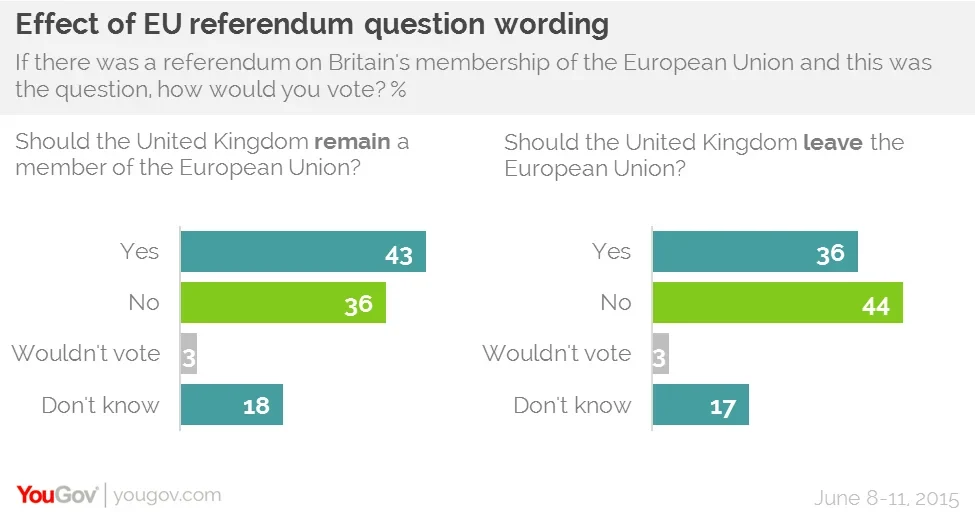The effect of changing the EU membership option from ‘Yes’ to ‘No’ seems limited at this stage
The official question wording for the coming referendum on the UK’s membership of the European Union has yet to be confirmed, but ‘Yes’ is expected to be the option for staying in the European Union and ‘No’ will be for leaving. The news has stirred Eurosceptics, for the reason that ‘Yes’ seems like the optimistic approach. Nigel Farage questioned why those who wanted Scottish independence could style themselves as the ‘Yes’ campaign, but those who want independence from Europe will get ‘No’ as their slogan.
YouGov has asked two versions of the referendum question to a split sample over three days, gathering over 2300 respondents for each question version. The first version asks if the UK should remain a member of the European Union, with ‘Yes’ as the pro-union answer, and the second asks if the UK should leave the European Union, with ‘Yes’ as the pro-independence response.
The result is virtually identical. In the first version, where pro-union campaigners would have the ‘Yes’ tag, staying in the European Union has a lead of 7. In the second version, where pro-independence groups would be the ‘Yes’ campaign, staying in the EU has a lead of 8. So the effect for the pro-union campaign of being awarded the ‘Yes’ answer is net -1, which is within the margin of error.

Of course, the research has been conducted prior to the campaign – it's possible the value of positivity could come into play as the debate gathers momentum.
Alex Salmond, who favours membership of the EU and pushed for Scottish independence as the ‘Yes’ campaign, says “the Yes side is important. If you want to embrace a positive vision of staying in the EU you want to be Yes”. In the 1975 referendum, Yes was also the option for remaining in the European Community, and Harold Wilson used the slogan ‘Say No to the No Men’, characterising No voters as downbeat cynics.







